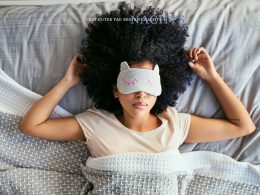The influence of hormones on our sleep should not be underestimated. After all, the sleep hormone melatonin is also responsible for falling asleep and staying asleep. However, other messenger substances can also affect our nightly rest and recovery phase – in both a positive and negative sense. Hormonal changes during the menopause, for example, are one reason why many women suddenly complain of sleep disorders. But why exactly is this the case? And is there a remedy? As always, you can find out all this and much more here at billerbeck, your sleep experts.
What exactly is the menopause?
The menopause is the transition from the fertile phase to the stage of life in which women can no longer reproduce. The menopause marks the final stage of fertility, namely the last spontaneous menstrual period, which on average takes place around the age of 52. The menopause takes place over a period of several years and often begins – unnoticed by many women – around the age of 40. However, it is also possible that the menopause does not start until the early or mid-50s. This varies completely from woman to woman.
The hormonal changes during the menopause, in particular the reduced oestrogen synthesis, can trigger a variety of physical and mental symptoms, such as hot flushes, sweating, dizziness, weight gain and severe mood swings. The menopause can also have a significant impact on sleep, leading to problems falling asleep and staying asleep.
What causes sleep disorders during the menopause?
Many women report sleep problems during the menopause. These can be caused by the hot flushes that frequently occur at this stage of life, which over 80% of women over 50 suffer from during the day and also at night, causing many to wake up in a cold sweat. Palpitations and other symptoms can also reduce the quality of sleep.
However, the reduced oestrogen level itself can also cause sleep problems during the menopause. This is because the hormone oestrogen also plays an important role in the phases of deep sleep. A falling hormone level impairs and significantly reduces the duration of these important recovery phases during sleep. As a result, the body and mind of menopausal women are less able to regenerate and recover, which can lead to reduced performance, fatigue and mood swings. Symptoms that are already associated with the menopause may therefore be exacerbated by sleep disorders during the menopause.
Worries, doubts and fears can also increase during the menopause and have a negative impact on sleep quality. The hormonal changes in the body of women over 50 also have a significant impact on the psyche. This can sometimes lead to depressive moods and reduced self-esteem, as it is not easy for many people to identify with the changes in their own body.
In addition, our need for sleep and sleeping behaviour generally changes with age – and this is completely independent of the menopause. It is therefore quite normal to need less sleep from a certain age and to have shorter deep sleep phases than younger people.
What can you do about sleep problems during the menopause?
Good sleep hygiene is beneficial in any case, including during the menopause. We have compiled the best tips for falling asleep from sleep experts in a separate blog post.
Good sleep hygiene naturally also includes comfortable bedding such as duvets and pillows that are customised to your individual needs. These should have excellent temperature and moisture-regulating properties so that they can optimally absorb and dissipate heat and moisture in the event of sudden hot flushes and outbreaks of sweating. Our anti-sweat duvets and anti-sweat pillows have proven their worth here. In addition, our Swiss stone pine duvets and Swiss stone pine pillow with a gentle woody fragrance ensure a pleasant sleeping atmosphere.
There are also some herbal medicines that can alleviate the symptoms of the menopause. You should always consult a doctor before taking them. We also recommend seeking advice and help from a doctor in the event of severe hot flushes, sleep disorders or other complaints that have a lasting negative impact on everyday life.














